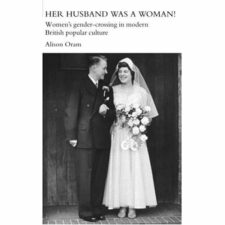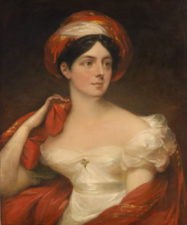Between 1936 and 1938, the American Works Progress Administration conducted oral histories amongst ex-slaves and the children of slaves across America. This is the story of Ms Holmes. More information and more life histories can be found here.
Ms. Holmes (first name unknown)
Nashville, Tennessee
My mother died after she was the mother of eight children. When my father came back from the war — in the old time way of jumping the broom handle — my mother had married again, so he didn’t disturb her, and the little children she had then. He just took me. He was sick, he had scurvy, asthma and all like they would have then after the war. My mother had all her children by her second husband, but me. In those days people married by jumping the broom handle, or marrying with a lamp, or by carrying a glass of water on their head. They would give you a pass to go over on the other farm, and it you didn’t have this pass the padder-rollers would cut your head off. Later on, two white men came over to my mother’s house and said you would have to have license now to live with your husband. They said a new law had been passed. But mother said she was just going to stay like she was. She died and left a house full of little children. They all died like little sheep. My stepfather left them; he was a mighty ladies’ man. Tho doctor said then that the reason all these little children died like that was because they were half clad and didn’t have enough to eat. Of course, I didn’t know what they meant then, but I know now that half clad meant they didn’t have clothes. I was just raised up in a house to work. I got married and been married so long I done forgot. I was 17, going on 18. When I married I had to have license bought, and that was done right in Morgantown. My mother was supposed to sign the papers, but she would not sign them, but the white people where I was living signed them. I have been married only once. We were just like folks are now sometimes, just living together like cats and dogs. I didn’t stay with him but only about three or four years. He didn’t work, he didn’t do nothing. I don’t know why I married him. But I was living up there with those white people, and they never wanted me out. I was raring to get away from white folks. I don’t know whether I loved him or not, but I guess I did. After we married it seemed he didn’t like dark people, and after we married he talked about my color. He was going with a “yaller” womam, and I whipped all the clothes off her once. I had two children by him. Both are dead now. One lived to be 21.
In my father’s time and all along my mother’s time, that’s when they chained the colored people and cut them all to pieces with cat-o’nine-tails and sprinkled salt and pepper on them. And when I married, that man put me right out in the field. I pulled corn, shocked corn and everything. He was awful mean; so much so I never wanted to go on in his name, Malone. I went on in my mother’s name, Holmes; and I am Holmes yet. I haven’t done any work now for 12 years. The church pays my rent and everybody here is good to me.
Katie Barclay is a historian in Irish Studies at Queen’s University, Belfast. She is always looking for contributions to the Women’s History Network Blog.

